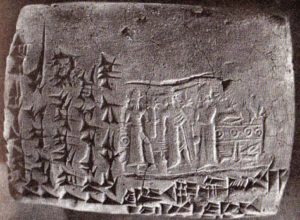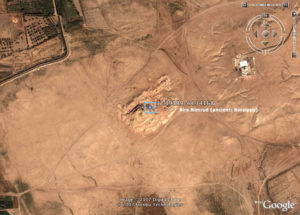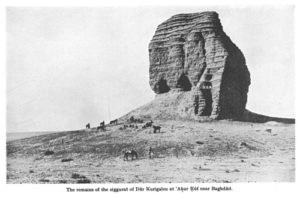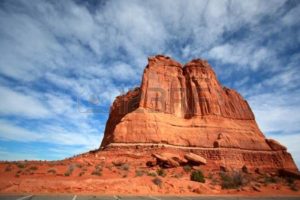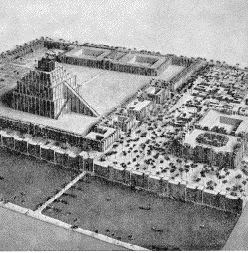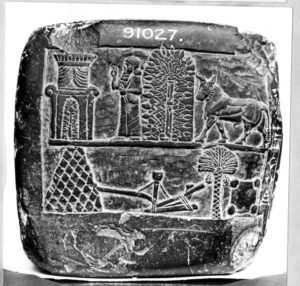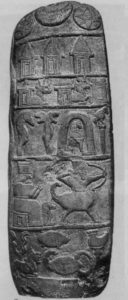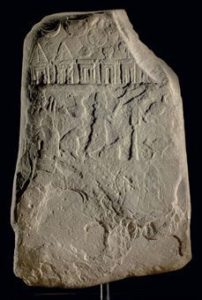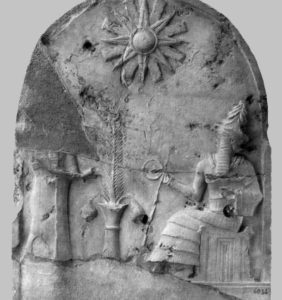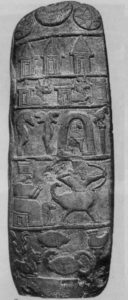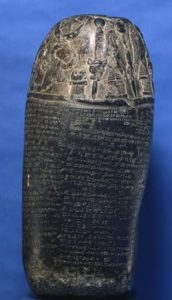http://oracc.museum.upenn.edu
(Texts: All Artifacts, Color Coding, & Writings in Bold Type With Italics Inside Parenthesis, are Added by Editor R. Brown, not the Authors, Translators, or Publishers!)
(gods in blue … mixed-breed demigods in teal)
Nabopolassar, king of justice, shepherd chosen by the god Marduk,
creation of the goddess Ninmenna (Ninhursag) — the exalted princess, the queen of queens —
protégé of the god Nabû and the goddess Tašmētu (Nabu’s spouse),
beloved prince of the god Ninšiku (Ninsikila?, unidentified):
When, during my childhood, (although) I was a son of a nobody,
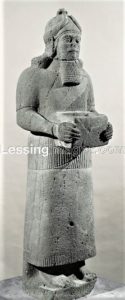
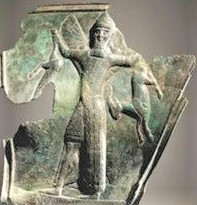 (Nabu & father Marduk)
(Nabu & father Marduk)
I was constantly assiduous towards the shrines of the gods Nabû and Marduk (Nabu’s father), my lords;
(my) mind pondered about making their rites secure and properly administering their kidudû-rites;
my attention was set on truth and justice.
The god Šazu (unidentified), the lord who knows the hearts of the gods of heaven and netherworld,
the one who constantly observes the ingenious behavior of the people, for me —
the child who could not be found among the people —
he observed my intention(s) and (i 20) made me pre-eminent in the land where I was created.
He called (my) name for dominion over the land and people, made a good lamassu walk beside me,
(and) allowed (me) to successfully undertake everything that I did.
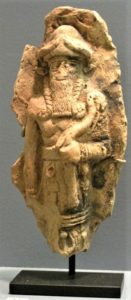 (Nergal, Lord of the Under World)
(Nergal, Lord of the Under World)
He made the god Nergal, the almighty one of the god, march at my side;
he killed my enemy (and) cut down my opponent.
(As for) the Assyrians, who had ruled over the land of Akkad because of the hatred of the gods
and had made the people of the land suffer under its heavy yoke,
I, the weak (and) powerless one who is assiduous towards the lord of lords (Marduk),
with the powerful strength of the gods Nabû and Marduk — my lords —
I barred them (lit: “their feet”) from the land of Akkad and had (the Babylonians) cast off their yoke.
At that time, Nabopolassar, king of Babylon, the one who pleases the heart(s) of the gods Nabû and Marduk,
I: (As for) Imgur-Enlil — the great wall of Babylon, the original boundary marker
which has been manifest since the distant past, the firmly-founded ground plan that has endured for all eternity,
the high mountain that rivals the heavens, the strong shield that bolts the entrance to the land of enemies,
the wide courtyard of the Igīgū (Igigi) gods, the broad forecourt of the Anunnakū gods,
the stairway to the heavens, the ladder to the netherworld,
the station(s) of the gods Lugal-girra (Ninazu) and Meslamtaʾe (Nergal),
the cult niche of the goddess Ištar (Inanna) — the great queen —
the site of the bow of the god Dagān (Enki) — the warrior —
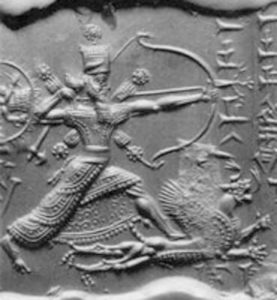 (warrior god Ninurta)
(warrior god Ninurta)
the camp enclosure of warrior — the god Ninurta —
the temple with the privileged status of the gods Anu and Enlil,
the place of sophisticated designs of the god Ea (Enki) — the lord of Eridu —
the secluded ground of the great gods, whose foundation(s) the Igīgū (and) Anunnakū gods
firmly established in the jubilation of their heart(s),
(whose construction) they had skillfully executed according to plan, (and) whose superstructure they had raised —
a long time ago it became weak, collapsed, and, on account of heavy rains and downpours,
its wall(s) were carried away (and) its foundation(s) had become a heap of ruins and was piled up like a tell.

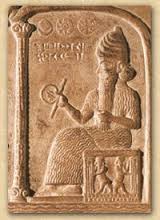
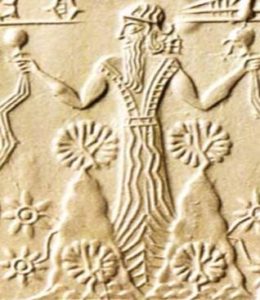 (Enlil, Utu, & Marduk)
(Enlil, Utu, & Marduk)
I mustered the workmen of the gods Enlil, Šamaš (Utu), and Marduk
and (then) I made (them) carry hoe(s and) imposed (on them the carrying of) basket(s).
From the bank of the Araḫtu canal on the upper side, at the gate of the goddess Ištar (Inanna),
to the bank of the Araḫtu <canal> on the lower side, at the gate of the gate of the god Uraš (Anu),
I removed its heaped up earth.
I examined (and) inspected its old foundation and (then) laid its brickwork on its original place.
I firmly secured its foundation on the surface (lit. “breast”) of the netherworld.
I surrounded the east bank with a strong lining.
Nabopolassar, the humble (and) submissive one who reveres the gods Nabû and Marduk,
the shepherd who pleases the heart of the goddess Pa(p)nun-anki (Zarpanītu) (Sarpanit, Marduk’s spouse),
the one who examines the old foundation of Babylon, the one who discovers brick(s) of the past,
the one who executes according to plan (work) on the original socle — (which has existed) for all eternity —
the one who grasps the hoe of the Igīgū gods, the one who carries the basket of the Anunnakū gods,
the one who built Imgur-Enlil for the god Marduk — my lord — I:
(So that) any future king does not have my carefully selected words removed
(and) that no word(s) come in existence that surpass my (own) command,
I swore an oath bound by the god Marduk, my lord, and the god Šamaš, my god:
“My words are not lies, but are reliable statements!”
At that time, I found a statue of a king who came before me who had built that wall,
(and) I firmly placed (it) in a secure place, (in) the great foundation(s), with my (own) statue, for eternity.
Any king in the future, either a son or grandson who comes after me,
whom the god Marduk names for dominion over the land:
Do not set your heart on feats of might and power,
(but rather) be assiduous towards the shrines of the gods Nabû and Marduk
so that they may kill your opponent(s).
The god Marduk, my lord, examines the mouth (and) observes the heart
(so) whoever is true to the god Bēl (Marduk) his foundations will endure
(and) whoever is true to the god Son-of-Bēl (Nabû) will live for ever.
When that wall becomes dilapidated and you repair its dilapidated section(s),
exactly like when I found an inscription of a king who came before me and did not change its location,
find an inscription (written) in my name (and) place (it) with your inscribed objects.
By the command of the god Marduk, the great lord whose command cannot be changed,
may the fame of your name be established for ever.
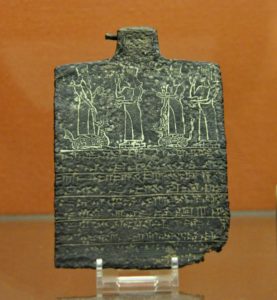 (Marduk, Inanna, Nabu, & spouse Nanaya)
(Marduk, Inanna, Nabu, & spouse Nanaya)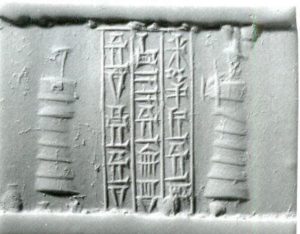 (Nabu & father Marduk, patron god of Babylon)
(Nabu & father Marduk, patron god of Babylon)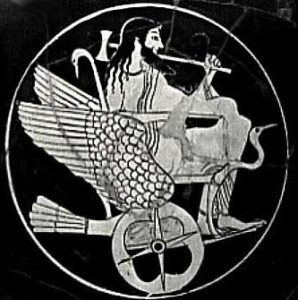
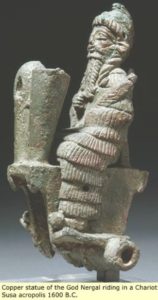 (Hades / Nergal in his sky-chariot)
(Hades / Nergal in his sky-chariot)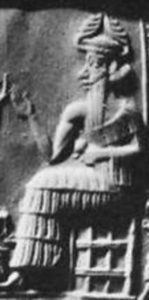
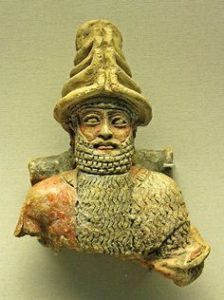
 (alien giant gods Enlil; Utu; & Marduk)
(alien giant gods Enlil; Utu; & Marduk)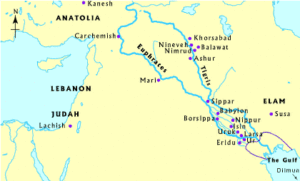
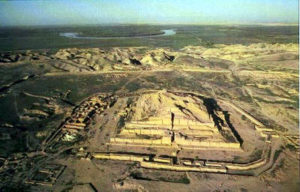 (Marduk’s Esagil residence in Babylon)
(Marduk’s Esagil residence in Babylon)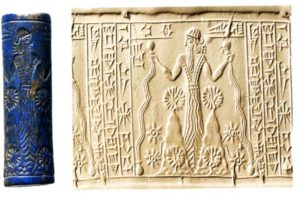 (Marduk, eldest son to wisest of all gods, Enki)
(Marduk, eldest son to wisest of all gods, Enki)






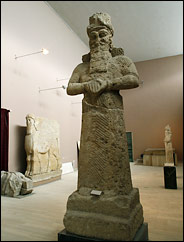
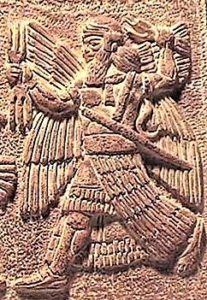
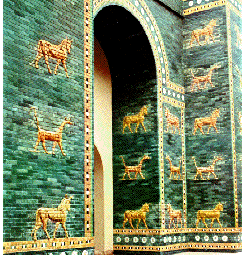
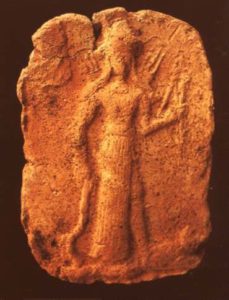
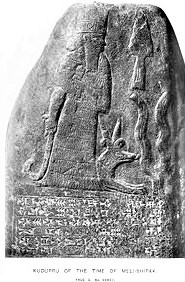
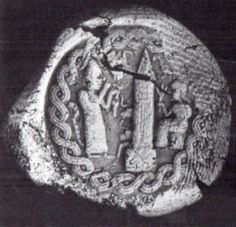
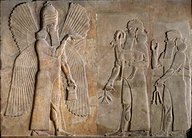
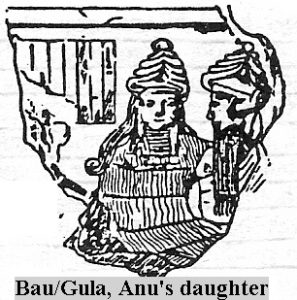
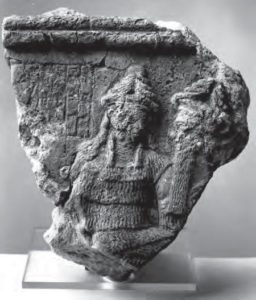
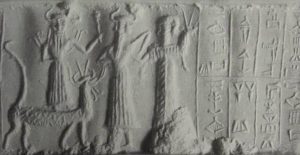
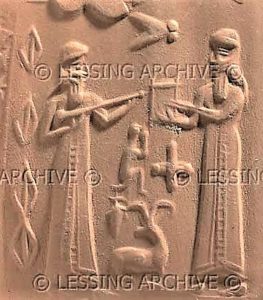
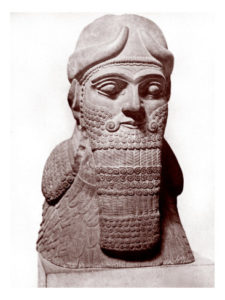
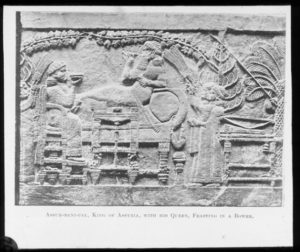
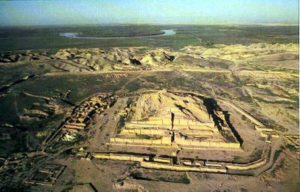
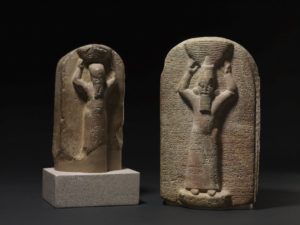
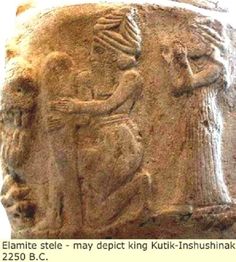
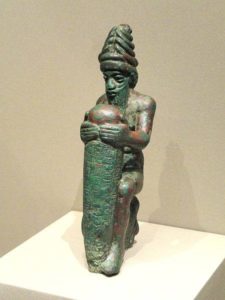
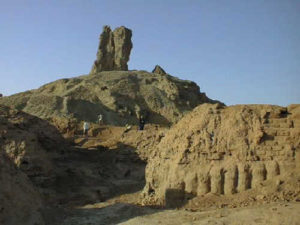 (
(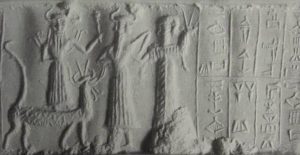
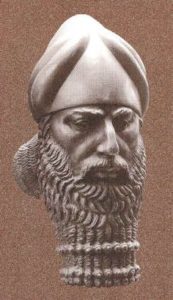
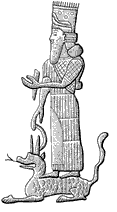
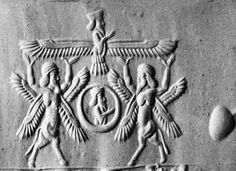
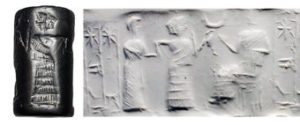
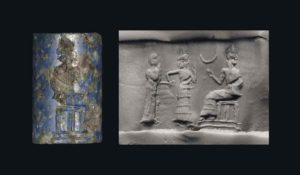
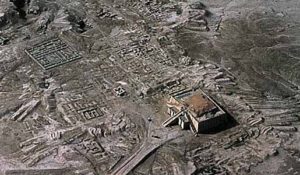 (
(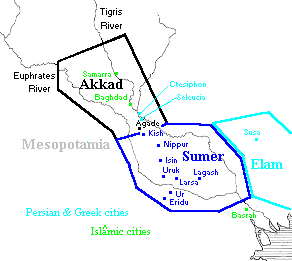
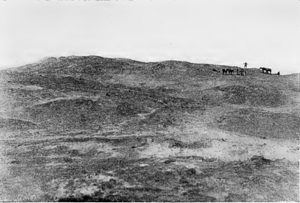
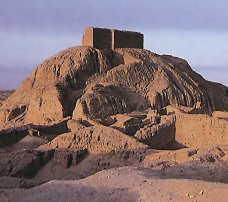
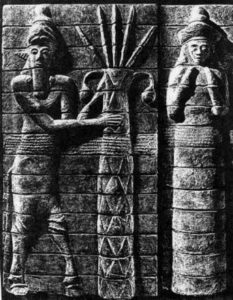
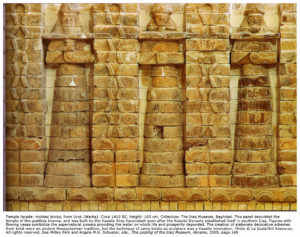 (
(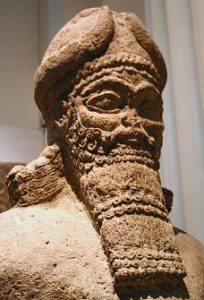
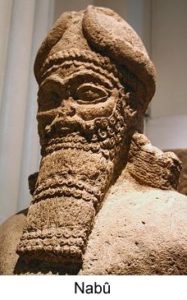 (
(